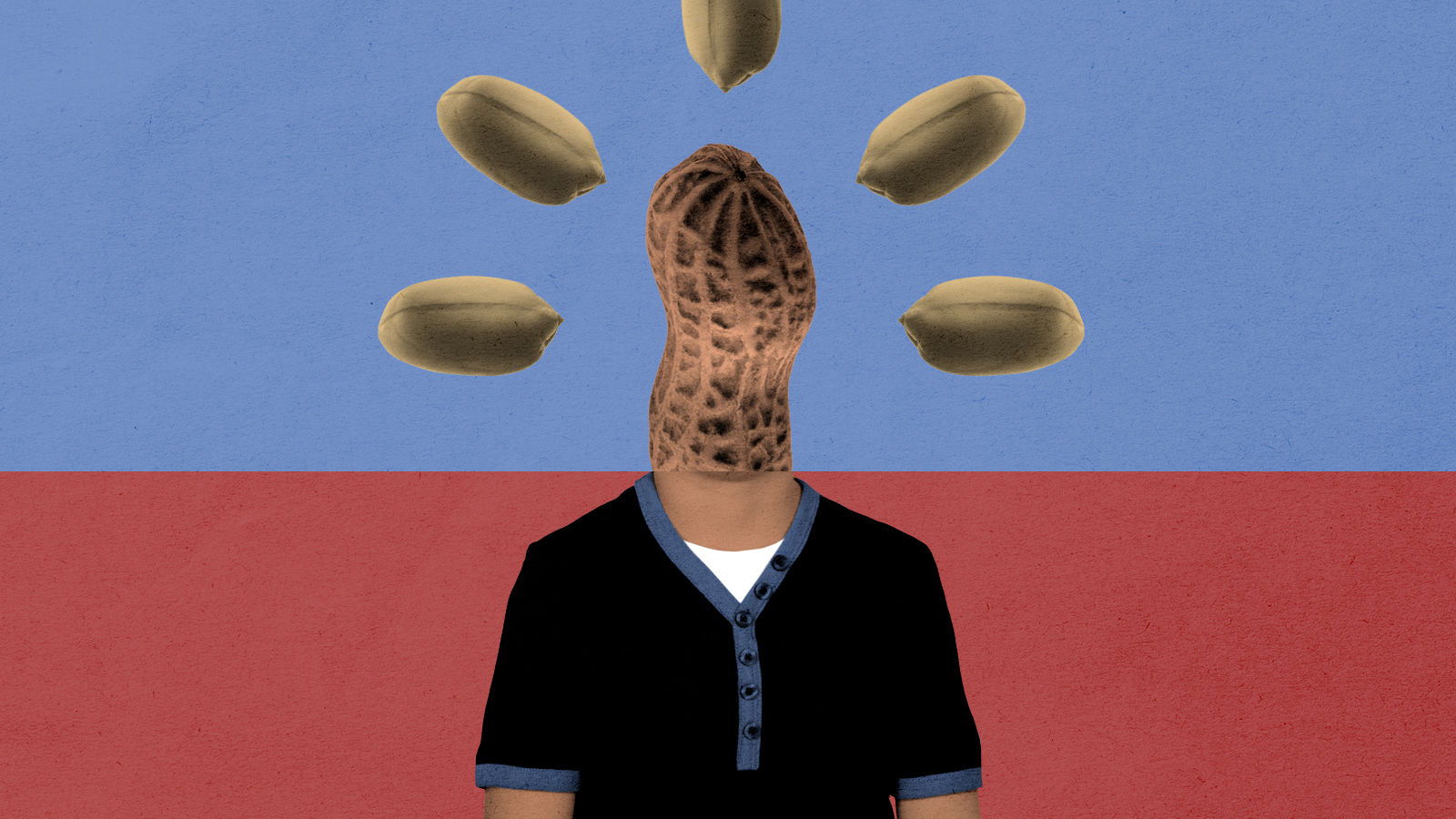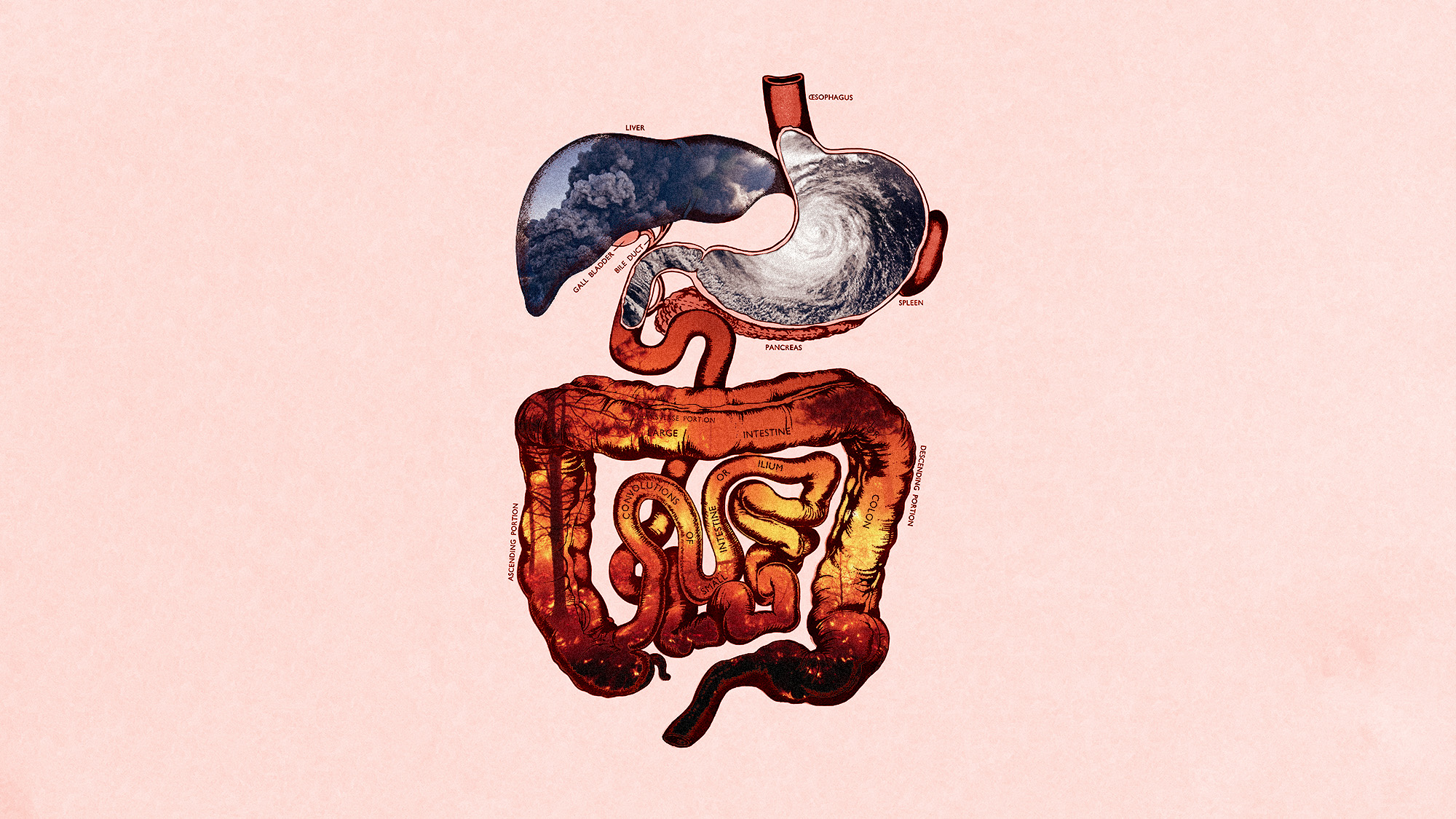Is there a cure for a peanut allergy?
Reactions to the nut are on the rise in American children


A free daily email with the biggest news stories of the day – and the best features from TheWeek.com
You are now subscribed
Your newsletter sign-up was successful
Peanut allergies are one of the most common food allergies, afflicting more than 6 million Americans. In recent decades, those numbers have continued to grow. With the prevalence of peanut allergies increasing, many have wondered if there is a cure. Here's everything you need to know:
What is a peanut allergy?
A peanut allergy is a medical condition that is triggered when a person comes into contact with peanut proteins. Their immune system "mistakenly identifies [the proteins] as something harmful," says the Mayo Clinic, and releases chemicals into the bloodstream that can cause a variety of symptoms ranging in severity from lightheadedness and itching to anaphylactic shock.
Why does someone develop a peanut allergy?
It's hard to say why or when certain people will develop a peanut allergy. In some cases, "25 percent of children with peanut allergies outgrow them," says Kara Wada, a doctor at the Ohio State University Wexner Medical Center, and "about 80 percent who outgrow them will do so by age 8." Still, this does not mean that the allergy only begins in childhood; adults may develop a reaction even if they were accustomed to eating jars of peanut butter prior.
The Week
Escape your echo chamber. Get the facts behind the news, plus analysis from multiple perspectives.

Sign up for The Week's Free Newsletters
From our morning news briefing to a weekly Good News Newsletter, get the best of The Week delivered directly to your inbox.
From our morning news briefing to a weekly Good News Newsletter, get the best of The Week delivered directly to your inbox.
Although there is no definitive answer, there are some theories. A popular one is called the "hygiene hypothesis," which explains that babies born in developing countries have fewer allergies than those in developed countries. The theory suggests that if children are exposed to germs at a young age, their bodies will build a strong enough immune system to not view these "substances" as a threat. "There's an idea that we now have less exposure to viruses and bacterial infection throughout our lives," Jeffrey Neal, an otolaryngologist, tells Verywell Family. "Essentially, because we live in sterile environments with air conditioning and that we're not outside as much, this leaves our immune system unbalanced and predisposes us to allergic reactions." Nonetheless, "much more research is needed to understand exactly how childhood germ exposure might help prevent allergies," says Mayo.
How many people have peanut allergies?
A study conducted in 2017 found that 2.5 percent of children in the U.S. may have a peanut allergy. That marks a 20 percent increase when compared to 2010, says VWF. "Peanut allergies are absolutely on the rise and have been for the last 30 years, to the point where it almost feels like an epidemic now," says Susan Schuval, MD. "We are also seeing a rise in severe reactions, along with other food allergies on top of peanut allergies. That means parents, and even adults, need to be aware that this is a major issue."
Is there a cure?
Nestlé gave a glimpse of hope to many when the company purchased the first FDA-approved treatment for peanut allergy, Palforzia, back in 2020. The plan was to introduce small doses of peanut powder to the immune system so that it could build up resistance.
However, Nestlé's was disappointed by a "slower-than-expected adoption by patients and healthcare professionals," reports Yahoo Finance. The company had expected a "blockbuster" of up to $1 billion in sales. "We did have high hopes for this business," Nestlé's CEO, Mark Schneider, told Bloomberg, "Instead of a blockbuster, what this looks like more and more is a very potent and very successful niche therapy." The company has decided to put the treatment up for sale.
A free daily email with the biggest news stories of the day – and the best features from TheWeek.com
What can be done right now?
It's recommended to get allergenic foods into the diet as soon as possible. According to VWF, parents were originally told to steer clear of peanuts until the child was at least three years old. However, David Stukus, a specialist in allergy and immunology in Columbus, Ohio, found the advice to be "backfiring." Instead, Stukus now encourages parents to introduce allergenic foods, including peanuts, to an infant's diet beginning around four to six months of age. "It is also very important to keep these foods in their diet consistently as well," he adds. "This can prevent food allergy from ever developing in many children, and more importantly, it's safe to do as well. We need babies eating a diverse array of foods with different tastes and textures, and help them expand their diet as early as possible."
If someone has been diagnosed with a peanut allergy, the most effective way to manage it is to avoid peanuts altogether. The American American College of Allergy, Asthma, and Immunology recommends being careful about what you eat. "If you have a child who is allergic to peanuts, or you suspect a peanut allergy in your infant or toddler, consult with a pediatric allergist. These specialists can provide a thorough evaluation and offer comprehensive education on how to best deal with a peanut allergy," says Martha Hartz, M.D., at Mayo.
Anahi Valenzuela has worked as an editorial assistant at The Week since 2022, where she assists with magazine content and covers the week's best photos. She started her career as a media producer at The Daily Californian and a writer for College Magazine.
-
 The 8 best TV shows of the 1960s
The 8 best TV shows of the 1960sThe standout shows of this decade take viewers from outer space to the Wild West
-
 Microdramas are booming
Microdramas are boomingUnder the radar Scroll to watch a whole movie
-
 The Olympic timekeepers keeping the Games on track
The Olympic timekeepers keeping the Games on trackUnder the Radar Swiss watchmaking giant Omega has been at the finish line of every Olympic Games for nearly 100 years
-
 Stopping GLP-1s raises complicated questions for pregnancy
Stopping GLP-1s raises complicated questions for pregnancyThe Explainer Stopping the medication could be risky during pregnancy, but there is more to the story to be uncovered
-
 Tips for surviving loneliness during the holiday season — with or without people
Tips for surviving loneliness during the holiday season — with or without peoplethe week recommends Solitude is different from loneliness
-
 More women are using more testosterone despite limited research
More women are using more testosterone despite limited researchThe explainer There is no FDA-approved testosterone product for women
-
 Climate change is getting under our skin
Climate change is getting under our skinUnder the radar Skin conditions are worsening because of warming temperatures
-
 Food may contribute more to obesity than exercise
Food may contribute more to obesity than exerciseUnder the radar The devil's in the diet
-
 Is that the buzzing sound of climate change worsening sleep apnea?
Is that the buzzing sound of climate change worsening sleep apnea?Under the radar Catching diseases, not those ever-essential Zzs
-
 Deadly fungus tied to a pharaoh's tomb may help fight cancer
Deadly fungus tied to a pharaoh's tomb may help fight cancerUnder the radar A once fearsome curse could be a blessing
-
 Climate change can impact our gut health
Climate change can impact our gut healthUnder the radar The gastrointestinal system is being gutted
